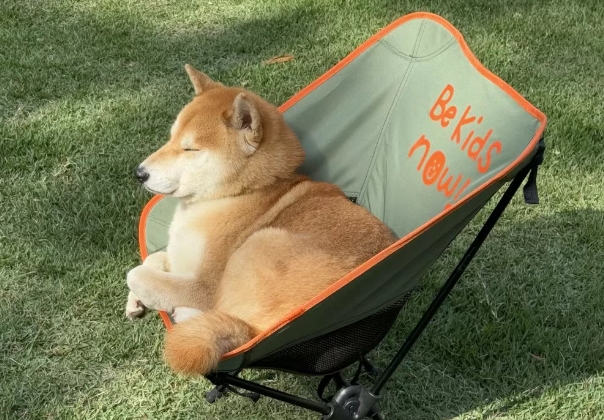When you take your dog out to play, you might often feel like it’s gotten too excited—no matter how much you call it back, it ignores you, or worse, runs even farther away. Actually, forcibly calling your dog back in certain situations not only doesn’t work well but can also hurt their feelings and even damage the trust between you!
-
When your dog is deeply sniffing: Don’t interrupt its “detective time”
A dog’s nose is its “super tool” for exploring the world. Sniffing is as addictive to dogs as scrolling through a phone is to humans. When your dog is fully absorbed in sniffing, forcibly calling it back can make it feel like “my owner is such a party pooper,” and might even create resistance. You should wait until it finishes sniffing, such as when it lifts its head to look around, before calling it back. Alternatively, train a “sniff permission” command like “Go sniff” and “Time to go.” But don’t yank the leash or shout at it loudly—otherwise, your dog might associate “sniffing” with “getting scolded.”
-
When your dog is happily playing with other dogs: Forcible recall = social killjoy
If you see your dog rolling around with friends and worry they might fight, rushing to call it back can make your dog feel like “making friends means losing freedom.” This can cause more excitement or aggression the next time it meets other dogs. Instead, observe your dog’s play behavior—intervene only if you see baring teeth or low growling. Use distraction methods like shaking a toy or opening a treat bag. Don’t chase and shout “Come back!” because your dog will think it’s a game of chase.

-
When your dog is marking territory: Interrupting can cause anxiety
Male dogs lifting their leg to pee is not just a physical need but also a way of “checking in” with their social circle. If you repeatedly pull your dog away during marking, it may hold its urine, leading to urinary problems, or develop anxiety about “being interrupted while peeing.” As a responsible owner, make sure your dog empties its bladder before going out and train a quick marking command, like “Hurry up!” And don’t yank the leash when it’s lifting its leg!
-
When your dog is enjoying alone time: Forced interaction = emotional kidnapping
If your dog is quietly resting, watching the scenery, or chewing on a toy, many owners can’t help but disturb it. However, frequent interruptions during alone time can make your dog overly dependent on you or lose its ability to self-soothe. Think about it: do you constantly pet your dog’s head when it’s resting? Do you keep chasing it when it hides in a corner? Stop doing that! You must respect your dog’s right to “not want to be bothered.”
-
When your dog is scared and running away: The more you chase, the more scared it gets
If your dog runs away because it’s scared of thunder or fireworks, chasing and yelling “Come back!” only reinforces its fear. Your chase at this moment confirms “There really is danger.” Instead, crouch down to reduce the intimidating presence, clap your hands softly, and use the sound of treat bags to attract your dog—avoid direct eye contact. If that doesn’t work, keep a safe distance and follow calmly, letting your dog calm down on its own.

How can you get your dog to happily come back?
Three Dos:
①Make your dog feel like “coming back = hitting the jackpot.” Your reward should be more exciting than whatever it’s doing at the moment.
②Train in stages, gradually increasing distractions—from low to high interference environments.
③Use random rewards: sometimes treats, sometimes toys, sometimes freedom to roam again.
Three Don’ts:
①Don’t end the game immediately after recall; create a cycle of “come back – play – go again.”
②Don’t use recall to do things your dog hates, like nail clipping or putting it in a crate.
③Don’t call your dog back when you’re angry; your frustration will make it “pretend not to hear.”
The best recall isn’t about control—it’s about making your dog feel that “coming back to you” is the most fun thing ever.

